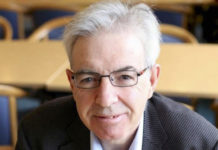A new study to be published in the next issue of Schizophrenia Research examines patients suffering from a first-episode of psychosis who stop taking any antipsychotic drugs. The researchers attempt to identify variables that may predict the successful discontinuation of antipsychotics. They find, for example, that those who discontinue the drugs have, on average, the same outcomes as those who stay on them, and that those who have better social integration are more likely to discontinue without relapse.
The current standard treatment for people who are experiencing their first-episode of psychosis is pharmacological treatment with first and second-generation neuroleptic or “antipsychotic” drugs. This practice has come under continued scrutiny and has consistently been challenged by new research.
For example, studies have found that some patients do well with psychosocial intervention alone, even when suffering from active symptoms of psychosis, and that the dangerous side-effects of antipsychotics might outweigh any benefits. Some authors have countered with results suggesting that a high percentage of patients suffer from relapse after discontinuing the drugs, leading others to recommend studies on antipsychotic drug tapering and dose reduction treatments for those suffering from psychosis.
Current approaches to discontinuation include scheduling gaps when the drugs are not given. These “drug holiday” strategies or “non-continuous dosing” treatments, as they’re known, are meant to decrease the risk of side-effects. Another approach being investigated aims to identify subgroups of patients who may best be able to discontinue the drugs with a minimal risk of symptom relapse.
Unfortunately, there is currently a dearth of research on predictors of successful discontinuation of antipsychotic drugs. The results of the European First Episode Schizophrenia Trials (EUFEST) present an opportunity to broaden our knowledge on this topic, however.
The EUFEST study was a large-scale analysis of everyday clinical practice for the treatment of psychosis, and all of the patients started with an antipsychotic at baselines. EUFEST is well suited to contribute to the literature on antipsychotic discontinuation because all patients were followed up on, even if they stopped taking the prescribed drugs.
The researchers break their analysis of the EUFEST data into two parts. First, they attempt to identify variables associated with a patient’s decision to discontinue the drugs, and, second, they to determine the predictors of successful discontinuation without relapse.
The first level of investigation revealed that the significant predictors of discontinuing all antipsychotic medication were: coming from Western Europe or Israel, lower compliance, experiencing a relapse, and a better social integration.
Interestingly, according to the analysis “having had a relapse was associated positively with stopping antipsychotic medication, but at the 12- month follow-up the patients who had stopped antipsychotic medication did not experience relapse more often.”
“A possible explanation for the higher rates of discontinuation in Western European countries is that the dense supply of psychiatric medical professionals needed for stopping all antipsychotic medication without risking worse outcomes might only be present in the Western European countries.”
Fifty-one patients in the study discontinued all antipsychotic medication and, of those, eighteen (35.3%) had no relapse and showed a reduction in symptoms while only twelve (23.5%) had one or more relapses.
It is also notable that overall outcomes did not appear to differ between those who stopped all antipsychotic drugs and those who stayed on them.
When the researchers examined those who were “successful discontinuers,” meaning they had stopped taking all antipsychotic drugs and had good outcomes, they found that they were more likely to have better social integration, a higher quality of life, more years of education, and a better prognosis at baseline.
“Predictors of successful discontinuation varied with the definition of success,” researchers found. When using the wider definition of “successful discontinuer,” limited to no relapse, “predictors of successful discontinuation were the region, paralleling the predictors of discontinuation in general, and patients were more depressed at baseline.”
“Using the more stringent definition of a good outcome that included remission in addition to not experiencing a relapse, better prognosis, and better baseline social integration predicted successful discontinuation.”
*
Landolt, K., Rössler, W., Ajdacic-Gross, V., Derks, E. M., Libiger, J., Kahn, R. S., … & EUFEST Study Group. (2016). Predictors of discontinuation of antipsychotic medication and subsequent outcomes in the European First-Episode Schizophrenia Trial (EUFEST). Schizophrenia Research. (Abstract)















Who put that F-ing art on? The purple person? dated 31 May 2005
That is such bullshit.
If you have someone with a medical diagnosis of Alzheimer’s , you don’t put their childish art along with an article on Alzheimer’s.
That art is to alienate “normal” people from the “schizophrenic” one.
Get any normal person to draw some art ( who has limited skill) and how different would it look ?
Report comment
Maybe we should get art drawn by biological psychiatrists, showing how they experience the world as a grim, Kafkaesque, colorless place in which human drones (more like walking human dollar symbols) enter their offices for 15 minutes at a time to receive their tranquillizers, before abruptly disappearing, with the psychiatrist knowing nothing more about them as people than before they entered…
Report comment
Mark, as an artist, who works with underprivileged children, some of whom are drugged. It’s blatantly obvious to me, from the artwork, when a child is on drugs that harm him / her – the chaos in the head, comes out as chaos on the paper. My own portfolio exemplifies this, as well. The antidepressants result in a massively simplified, and slightly chaotic, view of the world. The antipsychotics and poly pharmacy result in utter chaos on the canvas.
Love the imagery, BPT. Think it should be a series, or cartoon, and in the end, the psychiatrist declares the patient’s real life a “credible fictional story.”
Report comment
I think they “tell” the “schizophrenic” to paint a nutty painting.
Report comment
“… who may best be able to discontinue the drugs …”
I’m certain the millions of children and adults who were wrongly put on the antipsychotics, due to the massive number of “bipolar” misdiagnoses resulting from medical denial / ignorance of the ADRs of the antidepressants and ADHD drugs, would be good candidates for being weaned off the antipsychotics.
And I’m certain the massive number of child abuse and ACEs survivors, misdiagnosed as “psychotic,” which I understand is 2/3s of all “schizophrenics” today, would be good candidates as well. Since “antipsychotics don’t cure concerns of child abuse.”
In other words, it’s probably best to wean almost everyone off the antipsychotics. Especially since they’re torture drugs, and have been known to be for decades, rather than “wonder drugs.”
And these researchers seem to be ignoring the reality that weaning a person off the antipsychotics is known to result in a drug withdrawal induced super sensitivity manic psychosis. But this isn’t a relapse, as the medical community tends to claim. And, even if one does go through a manic psychosis after being weaned from the drugs, one still can recover fully, if properly supported. Rather than having this known drug withdrawal induced manic psychosis claimed to be a relapse, and massively medicated.
Report comment
Someone Else,
You’ve taken the words out of my mouth. Its not just about withdrawing, a person needs to be looked after when they withdraw. And sometimes withdrawal syndrome can be ‘permanent’, but at the same time it can still be possible to adapt around it and function.
(And never to return to the services again – saving the community millions)
Report comment
Well Mark, Richard Dadd has been dead 150 years and the dude from Saskatchewan who painted the opened head lying on its side so you could see horrible things going on in compartments inside it, recovered.
Report comment
Such an exciting study to see coming out. Must get my hands on it early. I’m in the last few weeks of writing up my doctorate thesis and these results would help fill a hole. I don’t think I can wait for it to come out. Prepare to be tracked down, authors! I’ve been researching subjective experiences of taking antipsychotics (n=144), which includes assessing predictors of quality of life as well as exploring attempts to stop, withdrawal experiences, time-to-withdraw, preparation methods, coping during withdrawal and discontinuation outcomes. There’s not a huge amount of existing research that includes people who have stopped AMs. This is an invaluable addition.
Report comment
Well that was easy to find! No need to track anyone down.
Report comment